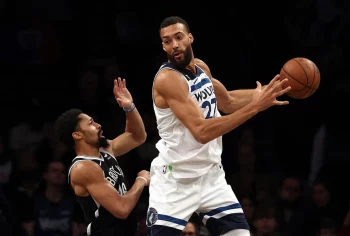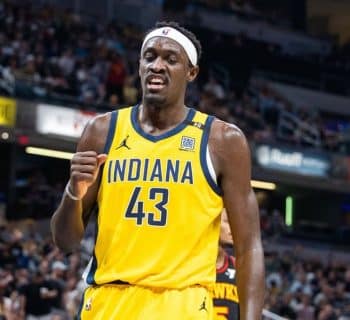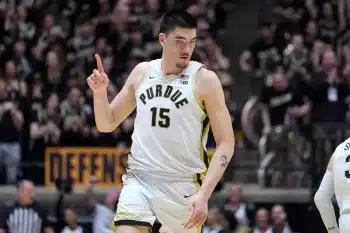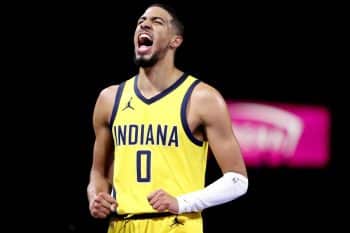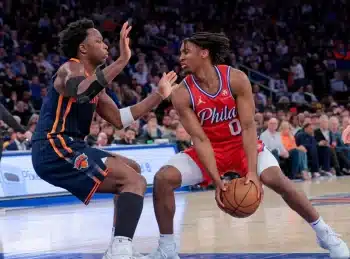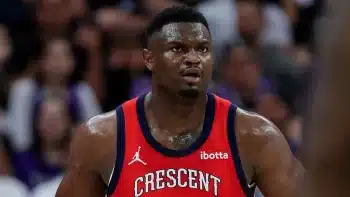NBA
Would Dolan Stepping Aside Allow the Knicks to Step Forward?

Considering how consistently successful the New York Yankees were under the stewardship of owner George Steinbrenner during the final 15 years of his reign, it’s hard to imagine a time when the Yanks struggled as mightily as the latter-day New York Knicks. However, the decade of the 1980’s up through the mid-90’s represented a relatively dark time for baseball fans in the Bronx.
Although we now think of the Yankees as a flagship MLB franchise, it certainly wasn’t always that way. For the disappointing Yankee teams of yesteryear, spending exorbitant sums of money didn’t result in postseason success. Beginning in 1982, the Yankees failed to qualify for the postseason for 13 straight seasons.
The Yanks made headlines for all the wrong reasons during this drastically disappointing stretch. Steinbrenner devolved into a caricature, his misdeeds landing him on the back page of the New York tabloids almost daily. Ruling as an angry despot with an iron fist, “The Boss” (as Steinbrenner came to be known) had his employees scurrying in fear.
This all came to an abrupt halt in July of 1990 when Major League Baseball Commissioner Fay Vincent launched an investigation which uncovered that Steinbrenner had paid $40,000 to a gambler named Howie Spira to dig up dirt on Yankee OF Dave Winfield (with whom Steinbrenner was feuding). As a result, Vincent took drastic action, banning Steinbrenner from the day-to-day operations of the Yankees organization.
Ironically, this allowed the Yankees, for the first time in a long time, to focus on developing their farm system, as opposed to relying on quick fixes and throwing excessive money at expensive free agents.
The Yanks began to sacrifice short-term, short-lived improvements for sustainable, long-term success. With ‘The Boss’ out of the picture, GM Gene “Stick” Michael (along with manager Buck Showalter) was finally allowed to patiently work his plan. Michael would sow the seeds that eventually blossomed into the epic dynasty that captured four World Series tiles in five years. And of course they have been a near constant in the postseason ever since.
Upon his return to the team in 1992, Steinbrenner’s desire to win had not decreased in any way; however, ‘The Boss’ did exhibit far greater patience and much greater willingness to listen to his sage GM. Steinbrenner would now allow himself to be talked into more prudent decisions. (The stories of Stick Michael convincing Steinbrenner not to trade away future stars such as Bernie Williams and Mariano Rivera have become legendary.)
On the day Steinbrenner was suspended, he was anything but the beloved owner that was eulogized glowingly upon his passing in 2010. In fact, Steinbrenner was despised by many Yankee fans back in the 80’s and early 90’s.
However, the incredible success the organization enjoyed during the latter portion of his tenure as owner obviously changed popular opinion and public sentiment.
So, why on earth are we discussing the Yankees on a basketball site?
It’s because the current owner of the New York Knicks can learn an extremely valuable lesson from the late, great George Steinbrenner. Specifically, how an intrusive, hands-on owner took a step back and gradually changed his approach, which was essential in the evolution of the Yankee from league-wide laughingstock into a wildly successful flagship franchise.
Steinbrenner and Dolan are polar opposites in many, many ways. The Boss loved the spotlight and coveted the back page. Dolan, on the other hand, is a relative recluse who dodges any form of media attention as if it was a right hand from Mike Tyson. Not only would Steinbrenner speak with reporters on a daily basis, he would go out of his way to contact them personally in order to vent publicly. There were no secrets in Yankee universe. Conversely, the Knicks regime under Dolan has a hard-earned reputation as arguably the most closed-off organization in any of the four major sports.
Nonetheless, these two men are, in some important respects, very similar. Both inherited a fortune from their uber-successful fathers. In addition, they are both blissfully willing to spend whatever it takes to see their team win. Despite the obvious lack of success the Knicks have experienced since the Dolan took control of the team (just one playoff series win in fifteen years), the Knicks are among the league’s top spenders every single season.
Still, Knick fans are planning a protest next week on the steps of MSG in the hopes of forcing Dolan to sell the Knicks. Typically, when fans are angry enough to beg an owner to sell his squad, it’s because said owner is too cheap and refuses to put a competitive product on the floor.
This is certainly not the case in NYC.
Dolan has always been willing to go above-and-beyond in order to buy the best players. The issue has been he has often trusted the wrong people (such as Scott Layden and Isiah Thomas) to pick which players to pay for. And even when Dolan has hired smart, respected basketball lifers to call the shots (such as Donnie Walsh and Glen Grunwald) these men have been unceremoniously pushed out the door.
In recent years, as Walsh and Grunwald were brushed aside, Dolan seems to have become more and more hands on. By most accounts, it was Dolan who negotiated the blockbuster deal that sent four starters and multiple draft picks to Denver in exchange for Carmelo Anthony. Many have suggested Andrea Bargnani being represented by CAA played a very important role in Dolan approving that trade. It was also reported by numerous outlets that it was Dolan who ended up nixing a deal for Toronto’s Kyle Lowry, as Dolan became angered that news of the negotiations had been leaked.
As Dolan’s purported meddling in Knicks affairs has increased, the negative ramifications it has had on the roster have become more prominent. Similarly, the excessively restrictive media policy he enforces with an iron fist has been devastating to the franchise’s reputation around the league. Dolan needs to step aside and allow a trained professional clean up this mess, and eventually begin to rebuild the organization on a solid foundation.
Many Knicks fans have allowed a sense of hopelessness to sink in, and it’s hard to blame them. Clearly the NBA would have no reason to banish Dolan from the day-to-day operations of the team, as MLB had done with Steinbrenner nearly 25 years ago; but what if Dolan decided he’d adhere to a self-imposed exile? Is that what the Knicks need to snap out of this nightmarish rut they have been since 2001?
What if Dolan voluntarily agreed to do what was best for the franchise? This would mean stepping aside and ceding complete control to a respected, capable and competent general manager. Ideally, said GM would retain absolute authority regarding all basketball decisions, including the hiring of a new head coach?
There is an imposed limit (salary cap) on the amount of money an NBA owner can spend on players; yet there are no such limitations on what a team chooses to spend on its coaches and basketball executives. It’s hard to imagine the Knicks returning to respectability anytime soon, but with the team potentially looking at a boatload of cap space in 2015, there could be hope on the horizon.
Truth be told, last week, when this article was first conceived of, the rumors of Phil Jackson taking over in New York had not yet sprouted up. Of course the appeal of Jackson, and the 11 rings he brings to the table, is undeniably appealing. In many ways he is an absolute ideal fit, considering his strong will and impeccable pedigree, to lead a wholesale culture change within the hallowed halls of Madison Square Garden.
However, there are also obvious causes for concern. Jackson will soon be 69 years of age and has battled serious health issues, which have impeded his ability to travel. Will Jackson be willing to commit 100% to what is undoubtedly a full-time job that requires exceedingly long hours?
Still, while Jackson would be a bit of a gamble considering that he’s never held a similar position before, it seems well worth a roll of the dice. As the upside of having a qualified basketball mind calling the shots for the Knicks is self-evident.
However, at the end of the day, this is all about Dolan. Jackson, or any other respected executive tasked with rebuilding the Knicks, will only be as successful as Dolan allows them to be. If there is a power struggle, the guy who writes the checks will always win. In order for the Knicks to take significant strides forward, Dolan has to move out of the way and fade into the background.
Back in the summer of 1990, it seemed extremely unlikely that Steinbrenner would one day be adored and venerated by Yankees fans as he approached his 80th birthday. Could Dolan’s reign ever result in such respect and adulation? The only way may be Dolan willingly taking a far less intrusive role in the day-to-day operation of the organization he owns.
